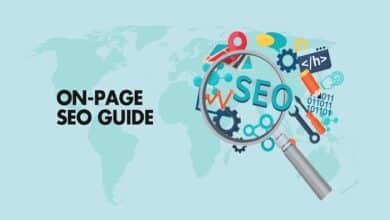SEO Digital: A Comprehensive Guide to Boosting Your Online Presence

Introduction
In today’s digital landscape, SEO digital strategies are more crucial than ever. Whether you’re running a personal blog, a small business website, or a large e-commerce platform, understanding and implementing effective SEO digital practices can make the difference between obscurity and online success. This comprehensive guide will take you through the essentials of SEO digital, offering insights into how you can leverage these strategies to boost your website’s visibility and drive more organic traffic.
What is SEO Digital?
SEO digital refers to the process of optimizing a website or online content to improve its visibility in search engine results. The goal of SEO digital is to attract more organic, or non-paid, traffic by ensuring that a website appears higher in search engine rankings for relevant keywords. This involves a combination of on-page and off-page strategies, including keyword optimization, content creation, backlink building, and technical improvements.
The Importance of SEO Digital in Today’s Market
In the highly competitive online market, SEO digital is not just an option; it’s a necessity. With billions of websites vying for attention, ensuring that your site is optimized for search engines is crucial for standing out. Effective SEO digital strategies help businesses and individuals reach their target audience by improving their search engine rankings. This increased visibility leads to higher traffic, more conversions, and ultimately, greater revenue.
Key Components of SEO Digital
To succeed in SEO digital, it’s important to understand its key components. These include:
- Keyword Research: Identifying the right keywords that your target audience is searching for.
- On-Page SEO: Optimizing individual pages on your website to rank higher and earn more relevant traffic.
- Off-Page SEO: Building credibility and authority by earning backlinks from reputable sites.
- Technical SEO: Ensuring that your website is technically sound, with fast loading times, mobile-friendliness, and secure connections.
- Content Marketing: Creating valuable content that attracts and engages your audience while incorporating relevant keywords.
Each of these components plays a critical role in a successful SEO digital strategy, and mastering them is essential for improving your online presence.
Understanding Keyword Research in SEO Digital
Keyword research is the cornerstone of any SEO digital strategy. It involves identifying the search terms that potential customers are using to find products, services, or information related to your business. By targeting these keywords in your content, you can improve your chances of ranking higher in search engine results. Tools like Google Keyword Planner, SEMrush, and Ahrefs are invaluable for conducting keyword research in SEO digital.
When performing keyword research, consider factors such as search volume, competition, and user intent. High-volume keywords might bring more traffic, but they often come with stiff competition. On the other hand, long-tail keywords, which are more specific and less competitive, can be easier to rank for and often result in higher conversion rates.
On-Page Optimization Techniques for SEO Digital
On-page optimization is a critical aspect of SEO digital. It involves optimizing various elements on your web pages to improve their search engine rankings. Key on-page factors include:
- Title Tags: Crafting compelling and keyword-rich titles that accurately describe the content.
- Meta Descriptions: Writing concise and engaging descriptions that encourage users to click on your link.
- Headings (H1, H2, H3): Organizing your content with headers to improve readability and keyword relevance.
- URL Structure: Creating clean, descriptive URLs that reflect the content of the page.
- Internal Linking: Linking to other relevant pages on your site to improve navigation and spread link equity.
- Image Optimization: Using alt text and optimizing file sizes to enhance image search visibility and page load times.
By implementing these on-page optimization techniques, you can enhance the effectiveness of your SEO digital efforts and improve your site’s overall performance.
The Role of Content Marketing in SEO Digital
Content marketing is a powerful tool in the SEO digital arsenal. High-quality, relevant content is what attracts visitors to your site and keeps them engaged. Search engines reward websites that provide valuable content by ranking them higher in search results. This makes content marketing an essential part of any SEO digital strategy.
When creating content, it’s important to focus on your audience’s needs and interests. Your content should answer their questions, solve their problems, or provide insights into topics they care about. Additionally, incorporating relevant keywords naturally into your content is crucial for improving your search engine rankings. Blog posts, articles, infographics, videos, and podcasts are all effective forms of content that can enhance your SEO digital efforts.
Building Backlinks: Off-Page SEO Digital Strategies
Off-page SEO, particularly backlink building, is a crucial element of SEO digital. Backlinks are links from other websites that point to your site. Search engines view these links as votes of confidence, indicating that your content is valuable and trustworthy. The more high-quality backlinks you have, the higher your site is likely to rank in search engine results.
To build backlinks, focus on creating content that other sites want to link to. This could be through guest blogging, creating shareable infographics, or producing in-depth research that others reference. Additionally, reaching out to industry influencers and asking them to share your content can be an effective way to gain valuable backlinks.
Technical SEO Digital: Enhancing Website Performance
Technical SEO is another critical aspect of SEO digital that focuses on improving the technical elements of your website to ensure it meets the requirements of modern search engines. This includes optimizing site speed, ensuring mobile-friendliness, creating an XML sitemap, and implementing HTTPS for security.
Search engines like Google use complex algorithms to rank websites, and these algorithms take into account the technical performance of a site. A slow-loading website, for example, can negatively impact user experience and result in lower search rankings. Similarly, a site that isn’t mobile-friendly will struggle to rank well on mobile search results. Therefore, paying attention to technical SEO is vital for a successful SEO digital strategy.
Local SEO Digital: Reaching a Targeted Audience
For businesses with a physical presence, local SEO digital strategies are essential. Local SEO focuses on optimizing your online presence to attract more business from relevant local searches. This includes claiming your business on Google My Business, optimizing your website for local keywords, and encouraging customer reviews.
Local SEO digital is especially important for small businesses that rely on local customers. By optimizing your site and online profiles for local search, you can increase your visibility to people searching for services or products in your area. This can lead to higher foot traffic, more phone calls, and ultimately, more sales.
Measuring Success in SEO Digital
No SEO digital strategy is complete without measuring its success. Tracking and analyzing your SEO efforts is crucial for understanding what works and what doesn’t. Tools like Google Analytics, Google Search Console, and other SEO software can provide valuable insights into your website’s performance.
Key metrics to monitor include organic traffic, bounce rate, average session duration, and conversion rates. Additionally, tracking your keyword rankings over time can help you gauge the effectiveness of your SEO digital strategies. By regularly reviewing these metrics, you can make informed decisions and adjust your strategy as needed to achieve better results.
Conclusion
SEO digital is an ever-evolving field that requires continuous learning and adaptation. By mastering the key components of SEO digital—keyword research, on-page optimization, content marketing, backlink building, and technical SEO—you can significantly enhance your online visibility and drive more organic traffic to your website. Whether you’re just starting or looking to refine your existing strategies, investing in SEO digital is a smart move that can yield long-term benefits for your online presence.
FAQs
1. What is SEO digital?
SEO digital is the practice of optimizing a website or online content to improve its visibility and ranking in search engine results.
2. How can keyword research improve my SEO digital strategy?
Keyword research helps identify the search terms your target audience is using, allowing you to optimize your content to rank higher in search results.
3. Why is content marketing important in SEO digital?
Content marketing is essential in SEO digital because high-quality, relevant content attracts visitors, engages them, and improves search engine rankings.
4. What role do backlinks play in SEO digital?
Backlinks are crucial in SEO digital as they serve as endorsements from other websites, signaling to search engines that your content is valuable and trustworthy.
5. How can I measure the success of my SEO digital efforts?
You can measure the success of your SEO digital efforts by tracking key metrics such as organic traffic, keyword rankings, bounce rates, and conversion rates using tools like Google Analytics and Google Search Console.





